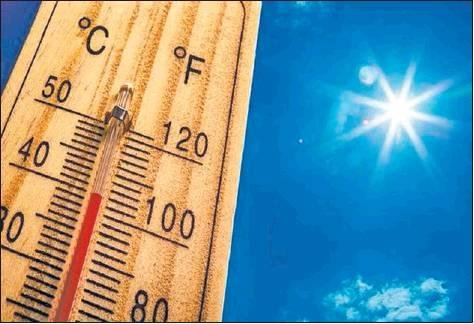Your Good Health
Don’t let the heat exhaust you
The heat index will be between 100 and 105 degrees here this week.
Wow, that’s hot! When temperatures are this high, the Lexington Medical Center Emergency department sees at least five people …
This item is available in full to subscribers.
Subscribe to continue reading. Already a subscriber? Sign in
Get 50% of all subscriptions for a limited time. Subscribe today.
Please log in to continueNeed an account?
|
Your Good Health
Don’t let the heat exhaust you
The heat index will be between 100 and 105 degrees here this week.
Wow, that’s hot! When temperatures are this high, the Lexington Medical Center Emergency department sees at least five people a day with heat-related illness. That number grows when there are young athletes at sports camps.
These illnesses have a broad spectrum. They can begin with muscle cramps or muscle spasms.
According to Daniel Avosso, MD, medical director of Lexington Medical Center’s Emergency department, patients with heat exhaustion have a core body temperature up to 104 degrees.
“They also may exhibit cardiovascular symptoms such as an increased heart rate or not being able to maintain their blood pressure,” Dr. Avosso said.
Heat stroke is more serious. It’s often defined by a change in behavior, confusion, unsteady gait or seizures. In this case, it’s important to cool the body very quickly. Heat stroke is most likely to affect people who are exerting themselves outside such as on the football field or in outside construction work.
It’s also important to know that some blood pressure medications and antihistamines can increase the risk of a heat-related illness. That’s because some of these medicines limit our ability to sweat – the body’s mechanism for cooling itself. Other risk factors include being sick, dehydrated or out of shape.
“Keep a close eye on children and the elderly during extreme heat. They may have a lowered sensitivity to thirst. And, in some cases, they may not be able to communicate they don’t feel well,” Dr. Avosso said.
If the person seems confused, if they’re sweating profusely, or if they’re not sweating at all, check their pulse and take their temperature. If those numbers are elevated, take them to a doctor right away.
Until the heatwave breaks, stay well hydrated with water and drinks that will replace electrolytes. Dr. Avosso recommends Pedialyte™, which he says offers more comprehensive electrolyte solution than sports drinks. Go inside to take breaks when possible.
Other items that may interest you










Comments
No comments on this item Please log in to comment by clicking here